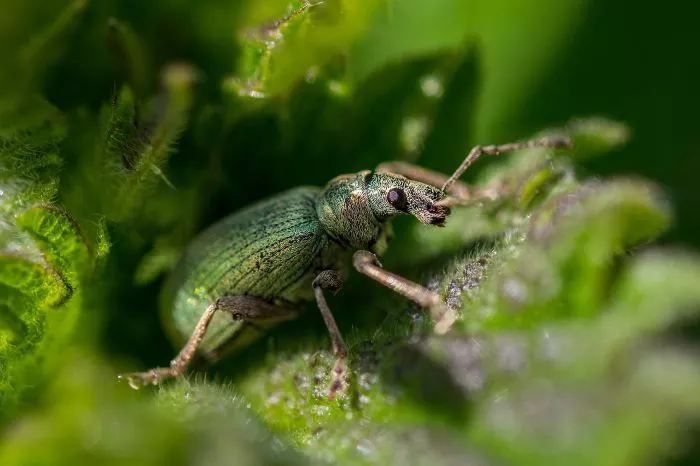Roses are beloved for their beauty and fragrance, but they can be vulnerable to a variety of pests. Insects such as aphids, spider mites, and beetles can damage rose plants, leading to stunted growth and reduced flowering. To protect your roses, it is essential to know what you can spray on them to deter these pests effectively. This article will explore various options for pest control on roses, including natural remedies, homemade sprays, and commercial products.
Understanding Common Rose Pests
Before discussing sprays, it is important to identify common pests that affect roses. Understanding these pests can help you choose the right control methods.
Aphids: These small, soft-bodied insects suck sap from rose plants. They can cause leaves to curl and stunt growth. Aphids often produce a sticky substance known as honeydew, which can lead to sooty mold.
Spider Mites: These tiny pests thrive in hot, dry conditions. They feed on the undersides of leaves, causing yellowing and stippling. Severe infestations can lead to leaf drop.
Japanese Beetles: These shiny, metallic green beetles feed on rose petals and foliage. They can quickly defoliate a plant if not controlled.
Thrips: These slender insects feed on flower petals and can cause discoloration and deformities in blooms.
Preventive Measures
Before resorting to sprays, consider implementing preventive measures to reduce pest infestations. Healthy plants are less susceptible to pests. Here are some strategies to keep your roses healthy.
Proper Watering: Water roses at the base to avoid wetting the foliage. This helps prevent fungal diseases and creates a less inviting environment for pests.
Pruning: Regularly prune your roses to improve air circulation. This reduces humidity around the plants, making them less attractive to pests.
Mulching: Apply organic mulch around the base of your roses. Mulch helps retain moisture, suppress weeds, and can deter some pests.
Companion Planting: Planting certain herbs and flowers near roses can naturally repel pests. Marigolds, for example, can deter aphids and nematodes.
Natural Remedies
If pests do appear, there are several natural remedies you can use as sprays. These options are generally safe for the environment and beneficial insects.
Soap Spray: A simple soap spray can effectively control soft-bodied insects like aphids and spider mites. Mix one to two tablespoons of liquid dish soap in a gallon of water. Spray directly on the affected areas, ensuring thorough coverage. Rinse the leaves with water after a few hours to prevent any potential leaf burn.
Neem Oil: Neem oil is derived from the seeds of the neem tree and is an effective natural pesticide. Mix two tablespoons of neem oil with a gallon of water and a few drops of dish soap to help emulsify the oil. Spray this mixture on the foliage, focusing on the undersides of leaves where pests often hide. Neem oil disrupts the life cycle of pests and is safe for beneficial insects when used correctly.
Garlic Spray: Garlic has natural insect-repelling properties. Blend several cloves of garlic with water, strain the mixture, and spray it on your roses. The strong odor deters many pests, including aphids and beetles.
Pepper Spray: Similar to garlic, hot pepper spray can deter pests. Mix one tablespoon of cayenne pepper with a quart of water and let it steep overnight. Strain the mixture and spray it on the affected plants. The spicy flavor can repel many insects.
Commercial Products
If natural remedies do not provide sufficient control, consider using commercial insecticides. When choosing a product, look for those specifically labeled for use on roses and effective against the pests you are targeting.
Insecticidal Soap: This product is available in ready-to-use sprays or concentrates. Insecticidal soap works by suffocating soft-bodied insects. Follow the manufacturer’s instructions for application rates and timing.
Horticultural Oil: Horticultural oils are effective against a range of pests, including aphids, spider mites, and scale insects. These oils suffocate pests and can also help control certain fungal diseases. Apply horticultural oil when temperatures are cooler to prevent leaf burn.
Pyrethrin: Derived from chrysanthemum flowers, pyrethrin is a natural insecticide effective against many garden pests. It acts quickly but breaks down rapidly in sunlight. Apply it in the evening to maximize its effectiveness.
Systemic Insecticides: These products are absorbed by the plant and provide long-lasting protection against pests. However, they can also harm beneficial insects, so use them as a last resort and follow all label instructions carefully.
Application Tips
When applying any spray to your roses, consider the following tips to maximize effectiveness and minimize harm.
Timing: Apply sprays in the early morning or late evening when temperatures are cooler. This helps prevent leaf burn and allows the spray to remain effective longer.
Thorough Coverage: Ensure that you cover both the tops and undersides of leaves. Many pests hide on the undersides, so thorough coverage is essential.
Repeat Applications: Most sprays require multiple applications for effective control. Follow the product instructions for reapplication intervals.
Monitor for Pests: After applying sprays, continue to monitor your roses for signs of pests. Early detection allows for timely interventions.
Conclusion
Keeping bugs off your roses is essential for maintaining their health and beauty. By understanding common pests and implementing preventive measures, you can reduce the likelihood of infestations. Natural remedies such as soap sprays, neem oil, garlic, and pepper sprays offer effective options for pest control. If necessary, commercial products like insecticidal soap and horticultural oil can provide additional protection. Always follow application guidelines and monitor your plants regularly to ensure successful pest management. With the right strategies, your roses can thrive and continue to bring joy to your garden.


